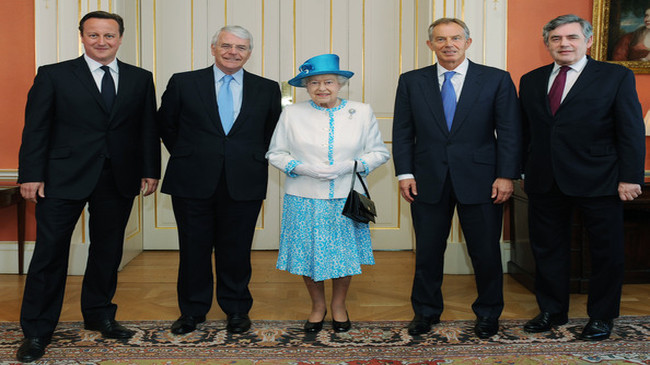UK royals enjoy great influence on political decisions


New revelations about the extent of British royals’ influence on legislation prove how false the claim that the Queen’s power over the UK government is only symbolic is.
According to the official website of the British monarchy, in the earliest times the Sovereign was a key figure in the enforcement of law and the establishment of legal systems in the UK. While no longer administering justice in a practical way, the Sovereign today still retains a symbolic role as the figure in whose name justice is carried out, and law and order is maintained.
However, the publication of a once secret document revealed the real influence and power of the British Queen and the Prince of Wales concerning the country’s political decisions.
According to Whitehall papers prepared by Cabinet Office lawyers, at least 39 bills have been subject to the royal approval, with the senior royals using their power to consent or block legislation proposed by the UK parliament in areas such as military authority, civil partnership, higher education, paternity pay and child maintenance.
The Cabinet Office document, which was released following a court order, showed that the Queen vetoed entirely a private member’s Bill, the Military Actions Against Iraq (Parliamentary Approval) Bill 1999, that would have transferred the power to authorize military strikes against Iraq from the monarch to Parliament.
The internal Whitehall pamphlet also said that among the new laws that required the Queen’s consent was the Civil Partnership Act 2004, as it contained a clause about the validity of the relationships “that would bind Her Majesty.”
Furthermore, the document revealed that the UK government was obliged to ask the Prince of Wales for his consent for the Merchant Shipping and Maritime Security Act 1997, because he owns the harbor of the Isles of Scilly through the Duchy of Cornwall.
In September 2012, it was made public that the Queen Elizabeth II had formerly raised doubts about the legal process for extraditing Muslim cleric Abu Hamza al-Masri to a former home secretary.
In an interview on Radio 4’s Today programme, BBC security correspondent Frank Gardner revealed details of the Queen’s conversation with the British state-run broadcaster, saying that she had previously talked with the home secretary at the time about the issue of Abu Hamza.
The intervention of Queen’s agent Sir John Kerr in Australia in 1975 is known as the greatest political and constitutional crisis in the Australian history.
On November 11, 1975, Australian Labour PM Gough Whitlam called on the Governor General to approve his proposed half-Senate election to end a political stand-off with the opposition Liberal party.
However, Kerr used the “rarely used” power he wielded on the part of the Queen, dismissed the democratically-elected Prime Minister and installed the opposition leader as caretaker PM.
Legislative powers in Britain seem not be solely exercised by the Parliament, as the Queen’s role is not completely apolitical and she is reported to use her power over the armed forces, the judiciary, the police and the secret services.







